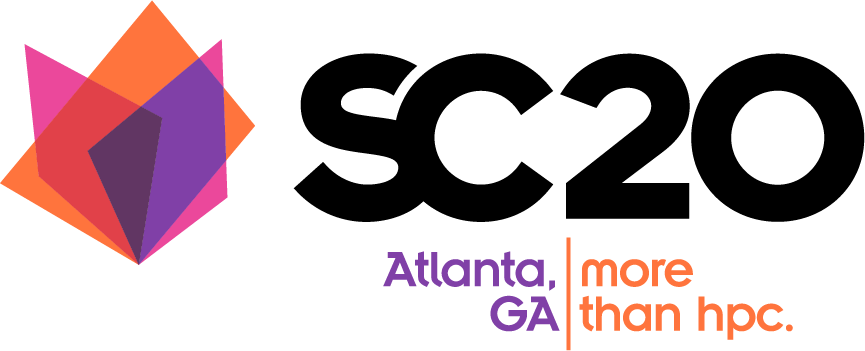



The growing disparity between CPU speed and memory speed, known as the memory wall problem, has been one of the most critical and long-standing challenges in the computing industry. The situation is further complicated by the recent expansion of the memory hierarchy, which is becoming deeper and more diversified with the adoption of new memory technologies and architectures including 3D-stacked memory, non-volatile random-access memory (NVRAM), memristor, hybrid software and hardware caches, etc. Computer architecture and hardware system, operating systems, storage and file systems, programming stack, performance model and tools are being enhanced, augmented, or even redesigned to address the performance, programmability and energy efficiency challenges of the increasingly complex and heterogeneous memory systems for HPC and data-intensive applications.
The MCHPC workshop aims to bring together computer and computational science researchers, from industry, government labs and academia, concerned with the challenges of efficiently using existing and emerging memory systems for high performance computing. The term performance for memory system is general, which include latency, bandwidth, power consumption and reliability from the aspect of hardware memory technologies to what it is manifested in the application performance. The topics of interest for the MCHPC workshop include, but are not limited to:
November 11th 2020 - Workshop
Authors are invited to submit manuscripts in English structured as technical papers up to 8 pages or as short papers up to 5 pages, both of letter size (8.5in x 11in) and including figures, tables, and references. Submissions not conforming to these guidelines may be returned without review. Your paper should be formatted using IEEE conference format which can be found from https://www.ieee.org/conferences/publishing/templates.html. The workshop also encourage submitters to include transparency and reproducibility information, using Transparency and Reproducibility Initiative for SC'20 Technical Papers as guideline.
All manuscripts will be peer-reviewed and judged on correctness, originality, technical strength, and significance, quality of presentation, and interest and relevance to the workshop attendees. Submitted papers must represent original unpublished research that is not currently under review for any other conference or journal. Papers not following these guidelines will be rejected without review and further action may be taken, including (but not limited to) notifications sent to the heads of the institutions of the authors and sponsors of the conference. Submissions received after the due date, exceeding length limit, or not appropriately structured may also not be considered. At least one author of an accepted paper must register for and attend the workshop. Authors may contact the workshop organizers for more information.
Papers should be submitted electronically at: https://submissions.supercomputing.org/, choose "SC20 Workshop: MCHPC'20: Workshop on Memory Centric High Performance Computing".
The final papers are planned to be published through IEEE TCHPC. Published proceedings will be included in the IEEE Xplore digital library.
We appreciate you fill in the online evaluation form for the workshop to give feedback. In the form, you need to select the MCHPC workshop from a drop down list to indicate which workshop your feedback applies to.
Abstract: In the past we have seen two major "walls" (memory and power) whose vanquishing required significant advances in architecture. This talk will discuss evidence on the emergence of a new third wall dealing with data locality, which is prevalent in data intensive applications where computation is dominated by memory access & movement – not flops, Such apps exhibit large sets of often persistent data, with little reuse during computation, no predictable regularity, significantly different scaling characteristics, and where streaming is becoming important. Solving such problems will take a new set of innovations in architecture to overcome. In addition to data on the new wall, the talk will introduce one possible technique: the concept of migrating threads, and give evidence of its potential value based on several benchmarks that have shown to have scaling difficulties on conventional architectures..
Brief Bio: PETER M. KOGGE is the McCourtney Professor of Computer Science and Engineering at the University of Notre Dame, a retired IBM Fellow, and a founder of Emu Solutions, Inc. His research interests are in massively parallel computing paradigms for unconventional applications. He holds over 40 patents and is author of two books. Prior projects included the IOP - the world’s second multi-threaded parallel processor which flew on every Space Shuttle, EXECUBE - the world's first multi-core processor and first processor on a DRAM chip. His startup, Emu Solutions, has demonstrated the first scalable system that utilizes mobile threads to attack large-scale big data and big graph problems. In 2008, he led DARPA’s Exascale technology study group, which resulted in a widely referenced report on exascale computing. Dr. Kogge has received the Daniel Slotnick best paper award (1994), the IEEE/ACM Seymour Cray award (2012), the IEEE Charles Babbage award (2014), the IEEE Computer Pioneer award (2015), and the Gauss best paper award (2015).
11:31am - 12:00pm Awais Khan, Hyogi Sim, Sudharshan S. Vazhkudai, Jinsuk Ma, Myeong-Hoon Oh, and Youngjae Kim; Persistent Memory Object Storage and Indexing for Scientific Computing; presentation
12:00pm - 12:30pm T. Chad Effler, Michael R. Jantz, and Terry Jones; Performance Potential of Mixed Data Management Modes for Heterogeneous Memory Systems; presentation
12:30pm - 01:00pm Steffen Christgau, and Thomas Steinke; Leveraging a Heterogenous Memory System for a Legacy Fortran Code: The Interplay of Storage Class Memory, DRAM and OS; presentation
01:00pm - 01:30pm Yifan Qiao, Xubin Chen, Jingpeng Hao, Tong Zhang, Changsheng Xie, and Fei Wu; Architecting Heterogeneous Memory Systems with DRAM Technology Only: A Case Study on Relational Database; presentation
2:31pm - 3:00pm Tom Deakin, James Cownie, Simon McIntosh-Smith, Justin Lovegrove, and Richard Smedley-Stevenson; Hostile Cache Implications for Small, Dense Linear Solves; presentation
3:00pm - 3:30pm Neil Butcher, Stephen Olivier, and Peter Kogge; Cache Oblivious Strategies to Exploit Multi-Level Memory on Manycore Systems; presentation
3:30pm - 4:00pm Mohammad Alaul Haque Monil, Seyong Lee, Jeffrey S. Vetter, and Allen D. Malony; Understanding the Impact of Memory Access Patterns in Intel Processors; presentation